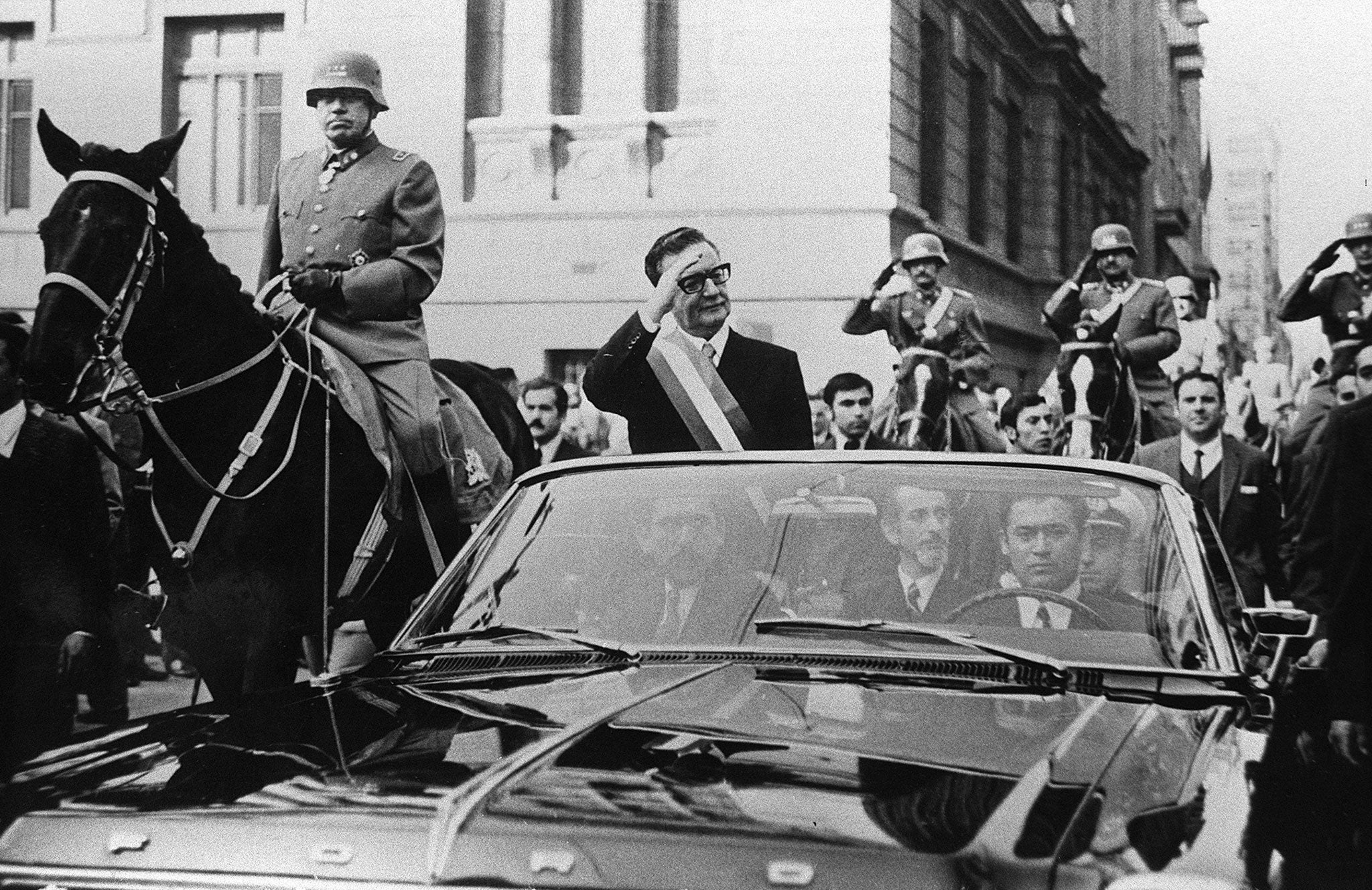Book review: Story of a Death Foretold, By Oscar Guardiola-Rivera
A biography of a radical staging a thwarted 'revolution from below'

la via chilena was an extraordinary happening. I was there a month before the 1970 elections: the marching and counter-marches and demonstrations were thrilling. That Salvador Allende was elected as a Marxist with a radical programme of land reform and nationalisation of mines – a revolution from below – didn't then seem to prefigure such a brutal reaction half-way through his six-year presidency, on 11 September 1973. Oscar Guardiola-Rivera's study takes an approach based on human rights, which involves the history of the idea.
Basically, it's an individual's rights that are protected; but if it remains that way, the idea fails as too traditional, too imperialistic. Human rights evolved from Allende's example into people's rights: non-hierarchical relations with the marginalised, whoever they may be, so leading to Julian Assange and Edward Snowden. It makes human rights more radical, and indebted to Chile's example.
Throughout this complex book, Guardiola-Rivera also enthusiastically champions Latin America's take on using the latest technologies for social purposes. A surprising figure is Englishman Stafford Beer, one of the earliest IT revolutionaries, but not a Marxist. He designed Chile's Project Cybersyn, with his Liberty Machine tying up networks of grassroots and unions in a futuristic centre for "new spaces for democracy".
However, the core of the book is a more traditional political biography of Allende's rise and fall. Here I have reservations. From the title, I expected a García Márquez-style investigation, which we half-get, but not in the relentless way of the master. The bare bones of the narrative are there, but muddled with unwieldy explanations. It's as if Guardiola-Rivera interrupts the narrative flow to give wordy mini-lectures on international law or human rights. If you are expecting a traditional biography of a period with individuals, you do not get it.
Guardiola-Rivera doesn't even believe in individuals but in forces at work. He zooms in and out of Allende's life. For example, Allende's meeting with a cobbler becomes too quickly an allegory. His first meeting with a junior Pinochet, as director of the Pisagua concentration camp, is just mentioned. He could have developed Che Guevara attending a speech given by Allende on his motorbike trip, or focused more on Allende's love life.
He asserts that Gloria Gaitán (daughter of Colombia's assassinated leader Jorge Eliécer Gaitán) was Allende's lover, but then leaps on to another issue. In the excitement of those years in power, did Allende discard his wife? His relationship with his daughter Beatriz is also fascinating, but not explored. It's as if there were more important things than subjective personal life. But there is gossip. We learn about Pablo Neruda's seduction of the liberated Blanca Luz Brun, for example, but this too is interrupted by more serious matters.
The heart of the book, though, deals chronologically with Allende's historical dilemma. A constitutionalist, he believed the army would uphold the law; he fought extremists on both the left and the right, planning land reform but not allowing too much land-grabbing. Guardiola-Rivera heralds Allende's compensation to the mining multinationals, based on notions of excessive profits, as ground-breaking.
Allende's trust in the constitutionalist generals René Schneider and Carlos Prats (both assassinated) and even in the last-minute traitor Pinochet expressed his belief in democracy, just as he tried to widen it horizontally with a plebiscite against the brutalities of US interference and violent right-wing, pro-Franco thugs in Chile. The resulting choice taken by Allende – to die fighting for legality in the Moneda palace – becomes genuinely tragic, and haunts Chile with its legacy.
Subscribe to Independent Premium to bookmark this article
Want to bookmark your favourite articles and stories to read or reference later? Start your Independent Premium subscription today.

Join our commenting forum
Join thought-provoking conversations, follow other Independent readers and see their replies